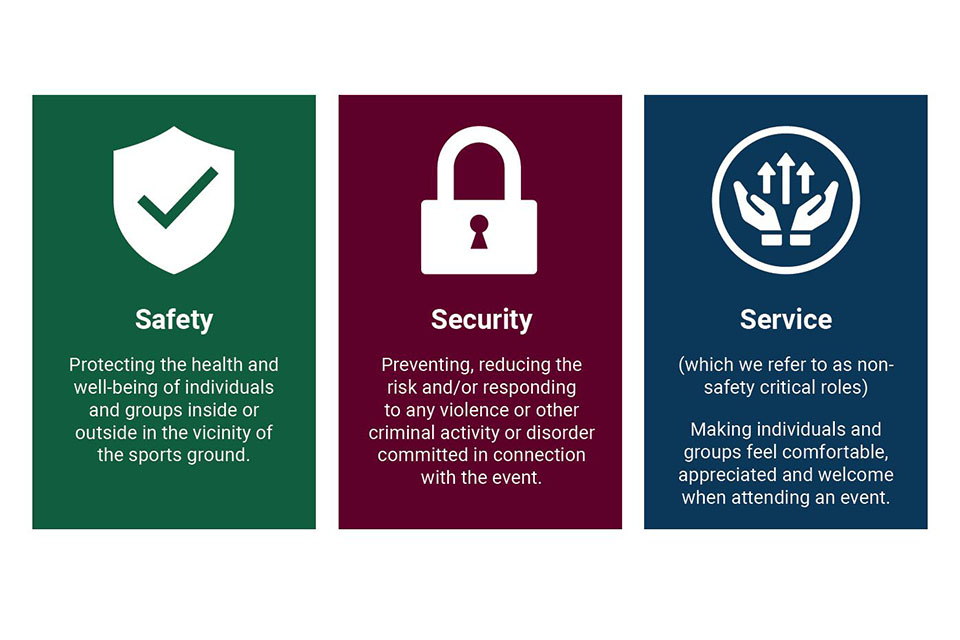SGSA stewarding factsheet 1: Overview
Published 1 August 2023
Background
Safety management seeks to ensure that all people present at an event not only are safe but also that they should have sufficient confidence in the safety management operation to feel safe.
No matter how basic or sophisticated the venue, or how technologically advanced the safety systems in place — CCTV coverage, communications network, alarm systems and so on — it is the competency and capacity of the venue’s human resources that will ultimately determine the quality of the safety management operation. This includes:
- a senior executive with overall responsibility for safety
- a safety officer to plan and oversee the event day operation
- supervisory stewards to form a link in the chain of command between the safety officer and all other stewards
- stewards performing locational or functional roles
- a named individual with a responsibility for security
- event attendants carrying out non-safety-critical roles
Safety, security and service
It is widely acknowledged that the delivery of a safe event is achieved by adopting an integrated and balanced approach towards the core elements of safety, security and service, as advocated by the Council of Europe. In brief, these are:

Safety: Protecting the health and well-being of individuals and groups inside or outside in the vicinity of the sports ground.
Security: Preventing, reducing the risk and/or responding to any violence or other criminal activity or disorder committed in connection with the event.
Service (which we refer to as non-safety critical roles): Making individuals and groups feel comfortable, appreciated and welcome when attending an event.
Factsheet series
This factsheet series provides an overview of the existing Sports Grounds Safety Authority (SGSA) guidance on stewarding and safety personnel.
Factsheet 2: Safety, security and non-safety critical roles – outlines the roles stewards and other safety personnel perform.
Factsheet 3: Stewarding roles and duties – outlines the roles and duties central to the safe delivery of events.
Factsheet 4: Qualifications – outlines the qualifications available for spectator safety personnel.
Factsheet 5: Training – outlines the venue, event and role specific training required for safety personnel.
Factsheet 6: SIA stewarding exemption for sports grounds – outlines the requirements for stewards performing security roles.
Factsheet 7: Briefing and debriefing – outlines the who, what, where, when and how of briefing and debriefing all safety personnel.
Factsheet 8: Management and HR – outlines some of the management and human resources issues that should be considered.
These are also available on the SGSA website.
Research
The SGSA, on behalf of the Department for Culture, Media and Sport (DCMS), has commissioned a number of research projects on stewarding. These have assisted in plans to scope a reform of stewarding.
Key findings
87% of stewards are satisfied with their role.
Quality of training and qualifications is inconsistent
The areas of least satisfaction:
28% working benefits
44% opportunities for career progression
57% the pay
Find out more
Further details can be found in the SGSA’s existing guidance:
- Guide to Safety at Sports Grounds (Green Guide) sixth edition – Sections 3.10 – 3.13 and Section 4.1 – 4.22.
- Supplementary Guidance 03: Event Safety Management – Section SG03 4.12 – 4.26.
Council of Europe – Safety, Security and Service: the Saint-Denis Convention
